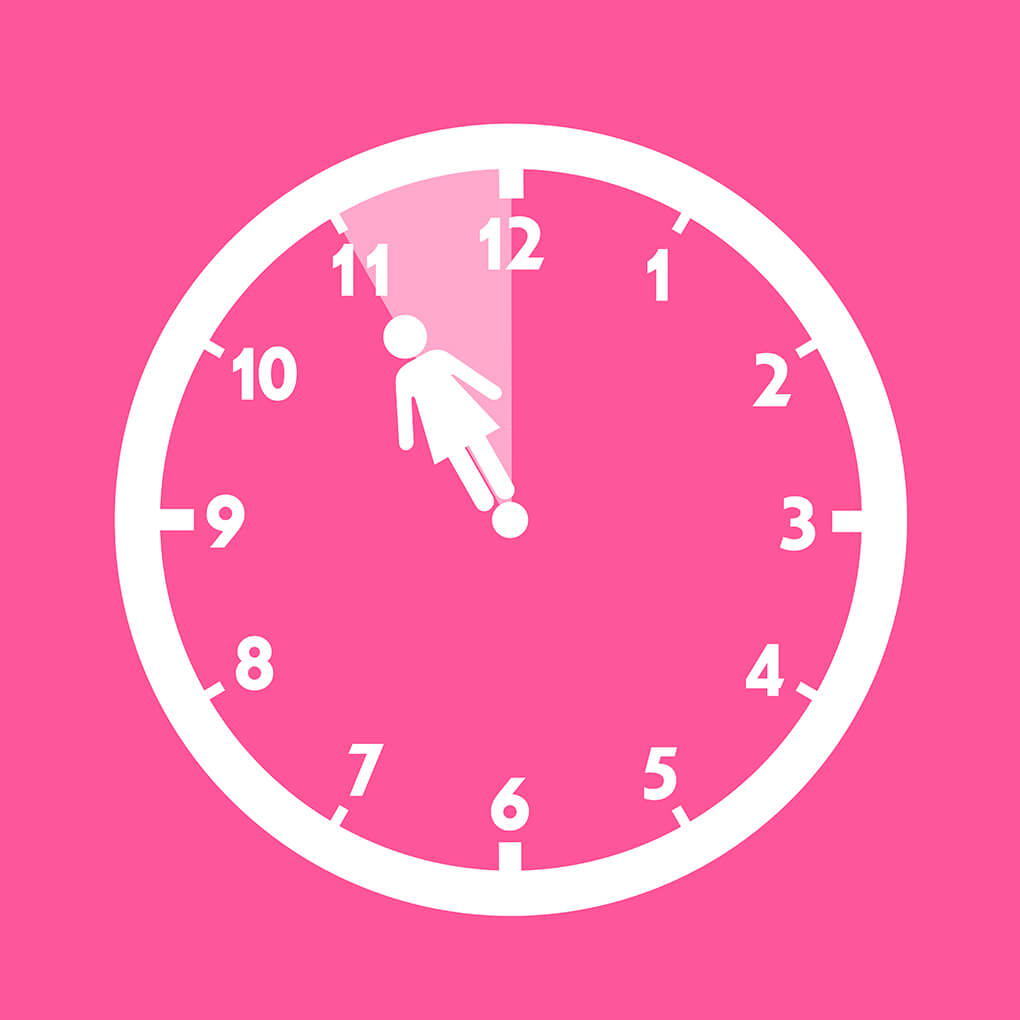Follow Us!
Patient stories, informative videos and much more on our social media accounts

Menopause, a natural process of aging in women, is not a disease but a new phase in life when menstruation ceases. In other words, it is the period in women’s lives when fertility ends due to changes in hormone balance.
This article gathers answers to frequently asked questions like “What is menopause?”, “What are the symptoms of menopause?”, and “What are the symptoms before menopause?”
Menopause is a phase when menstrual cycles end and women experience hormonal changes. In other words, it is the period when fertility ends due to changes in hormonal balance. For a woman to be diagnosed with menopause, she must have gone 12 months without a period.
During menopause, the production of female hormones such as estrogen and progesterone decreases. The function of the ovaries slows down, and ovulation no longer occurs regularly.
Menstrual periods become irregular and eventually stop completely. However, women do not lose interest in sex during menopause. On the contrary, many women feel better in this regard due to the absence of pregnancy risk.
The average age of menopause is between 48-50, but this can vary across different populations. Women who are poorly nourished, underweight, vegetarian, have had a hysterectomy, have experienced intrauterine growth restriction, or live in high-altitude areas may experience menopause earlier.
Also, women who smoke tend to enter menopause earlier. With increasing life expectancy, the time women spend in menopause is also longer. In developed countries, one-third of a woman’s life is spent in the menopause phase.
Monthly menstrual cycles are the result of complex bodily functions preparing for pregnancy. Hormones secreted by the brain and ovaries trigger egg development.
These hormones also cause ovulation, which is the release of the egg from the follicle (sac) where it develops. Due to these hormones, the lining of the uterus thickens in preparation for pregnancy. If pregnancy does not occur, this lining sheds as menstrual blood.
As women age, their ovaries also age, and around the age of 40, the ovaries respond less to hormonal signals from the brain and produce less estrogen.
Menstrual cycles become irregular, and during this period before menopause, estrogen levels drop rapidly. Eventually, with the cessation of egg development and estrogen production in the ovaries, periods stop, and menopause begins.
If menstruation is delayed for more than six months, blood levels of estrogen and the hormone that stimulates ovulation (FSH) should be measured to confirm the diagnosis.
Perimenopause refers to the transition period from regular menstruation to menopause. During perimenopause, the number of eggs in the ovaries decreases significantly, making ovulation less frequent.
Women typically experience their last period at the age their mothers went through menopause. Regardless of age, women who have had a hysterectomy (removal of the uterus) are considered to have entered menopause.
Women who have had a hysterectomy but retained their ovaries will not experience menstrual periods, but they are not considered to have entered menopause unless ovarian function ceases. Men do not experience menopause, but aging in men leads to a condition known as andropause due to decreased testosterone levels.
The most typical symptom of menopause is hot flashes. These are sudden redness and heat in the head, neck, and chest, followed by excessive sweating.
These symptoms usually last 1-2 years, but in 25% of women, they can persist for more than five years. Although the exact cause is unknown, it is believed that the main factor is a decrease in estrogen hormone levels.
The epithelial layer covering the vagina and urinary tract thins and loses elasticity. Vaginal dryness is also one of the common symptoms.
Despite a general belief that mental health problems increase during menopause, studies do not support this. The idea that depression is more frequent during menopause is also no longer accepted.
However, due to hot flashes, patients may experience decreased sleep quality and, consequently, a decline in the quality of daily life.
Menopause symptoms and pre-menopause symptoms (perimenopause) are similar. The question “How does menopause begin?” is commonly asked by women. The symptoms listed below do not appear all at once but gradually.
These symptoms include:
Symptoms, including changes in menstruation, vary from woman to woman. During perimenopause, it is common and expected for periods to stop for a couple of months. Menstrual cycles may be skipped for one month and return, and this can happen several times.
Additionally, menstrual cycles may become shorter, and periods will occur closer together. Despite irregular cycles, pregnancy is still possible. If you have missed a period but are unsure whether you are in the menopausal transition, it is advisable to take a pregnancy test.
Symptoms of early menopause are similar to those of normal menopause. In addition to the typical symptoms, some women may experience joint pain, headaches, and heart palpitations. If a woman experiences these symptoms before the age of 40, it is referred to as early menopause.
If your periods have stopped, simple blood tests can determine if you are in menopause. Menopause is a slow-developing process.
If menstruation has not occurred for 6-12 months, menopause may not have started. During this period, it is usually advised to continue using birth control to avoid pregnancy.
Changes in menstrual patterns, heavy bleeding, prolonged bleeding, bleeding more often than every three weeks, bleeding after intercourse, and bleeding between periods should all be addressed by a doctor. Early menopause treatment is no different from normal menopause treatment.
While menopause itself does not cause pain, studies show that chronic pain intensifies in women entering menopause and postmenopausal women. A possible reason for this is that estrogen affects the pain threshold.
Before answering how long menopause symptoms last, it is important to note that these symptoms vary for each woman. On average, perimenopausal symptoms last for about 4 years.
“What is the average age of menopause?” is another frequently asked question, but the age of menopause varies from person to person. Menopause can occur in the 40s or in the 50s. In Western countries, the average age of menopause is 51, while in our country, the average age is 47.
Although menopause symptoms are defined as bleeding and irregular periods, bleeding is not normal in the postmenopausal period. If you experience bleeding after menopause, you should consult a doctor immediately.
After menopause, the risk of certain diseases increases. Examples include:
Let us call you as soon as possible regarding the issues you want to consult.


